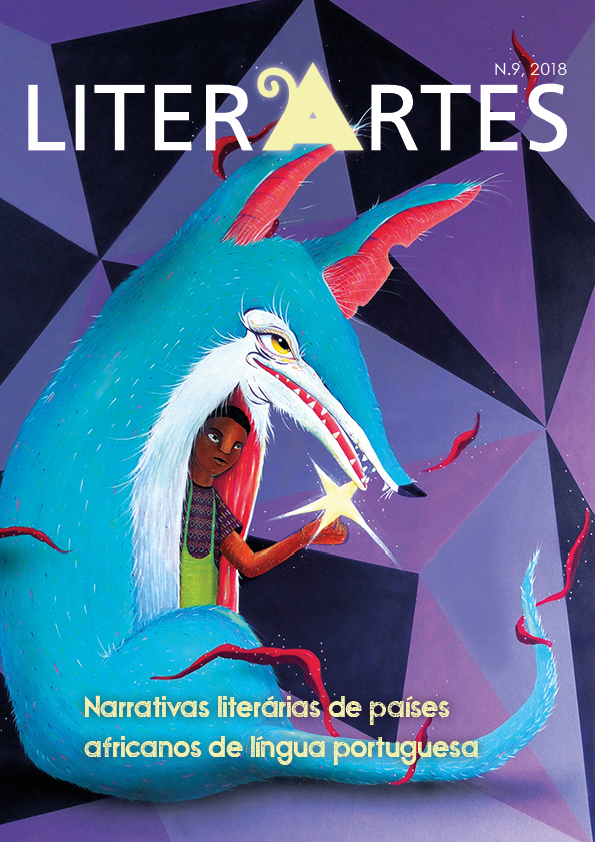Rebirth as a metaphor for the assumption of gender identity as opposed to heteronormativity in Mia Couto's Woman of Me
DOI:
https://doi.org/10.11606/issn.2316-9826.literartes.2018.146688Keywords:
Heteronormativity, genre, rebith, literature, MozambiqueAbstract
In the essay, the tale Woman of Me, by the Mozambican writer Mia Couto, is analyzed. Narrated in the first person, the text presents as a central character a male figure who, from the beginning, demonstrates the awareness that he underwent a transformation, which would lead him to become the "previous matter" (COUTO, 1998) formed. This narrator reports receiving night visits from a woman. At first, he alludes to this woman as someone other than himself. Little by little, this woman empowers herself before the narrator, so that the metamorphosis announced in the form of an assumption by this narrator of the feminine gender is put into action. In the course of the text, the discomfort with the female presence that visits him is evidenced. It is the denial imposed by the idea of heteronormativity, which leads him to refuse the condition that intensified, since it is subjectivated by cultural codes. The objective of the essay is to discuss the literary way the text examines the construction of the difficult process for the assumption of a gender identity that is opposed to heteronormativity.
Downloads
Published
Issue
Section
License
Autores que publicam nesta revista concordam com os seguintes termos:
- Autores mantém os direitos autorais e concedem à revista o direito de primeira publicação, com o trabalho simultaneamente licenciado sob a Licença Creative Commons Attribution que permite o compartilhamento do trabalho com reconhecimento da autoria e publicação inicial nesta revista.
- Autores têm autorização para assumir contratos adicionais separadamente, para distribuição não-exclusiva da versão do trabalho publicada nesta revista (ex.: publicar em repositório institucional ou como capítulo de livro), com reconhecimento de autoria e publicação inicial nesta revista.
- Autores têm permissão e são estimulados a publicar e distribuir seu trabalho online (ex.: em repositórios institucionais ou na sua página pessoal) a qualquer ponto antes ou durante o processo editorial, já que isso pode gerar alterações produtivas, bem como aumentar o impacto e a citação do trabalho publicado (Veja O Efeito do Acesso Livre).



